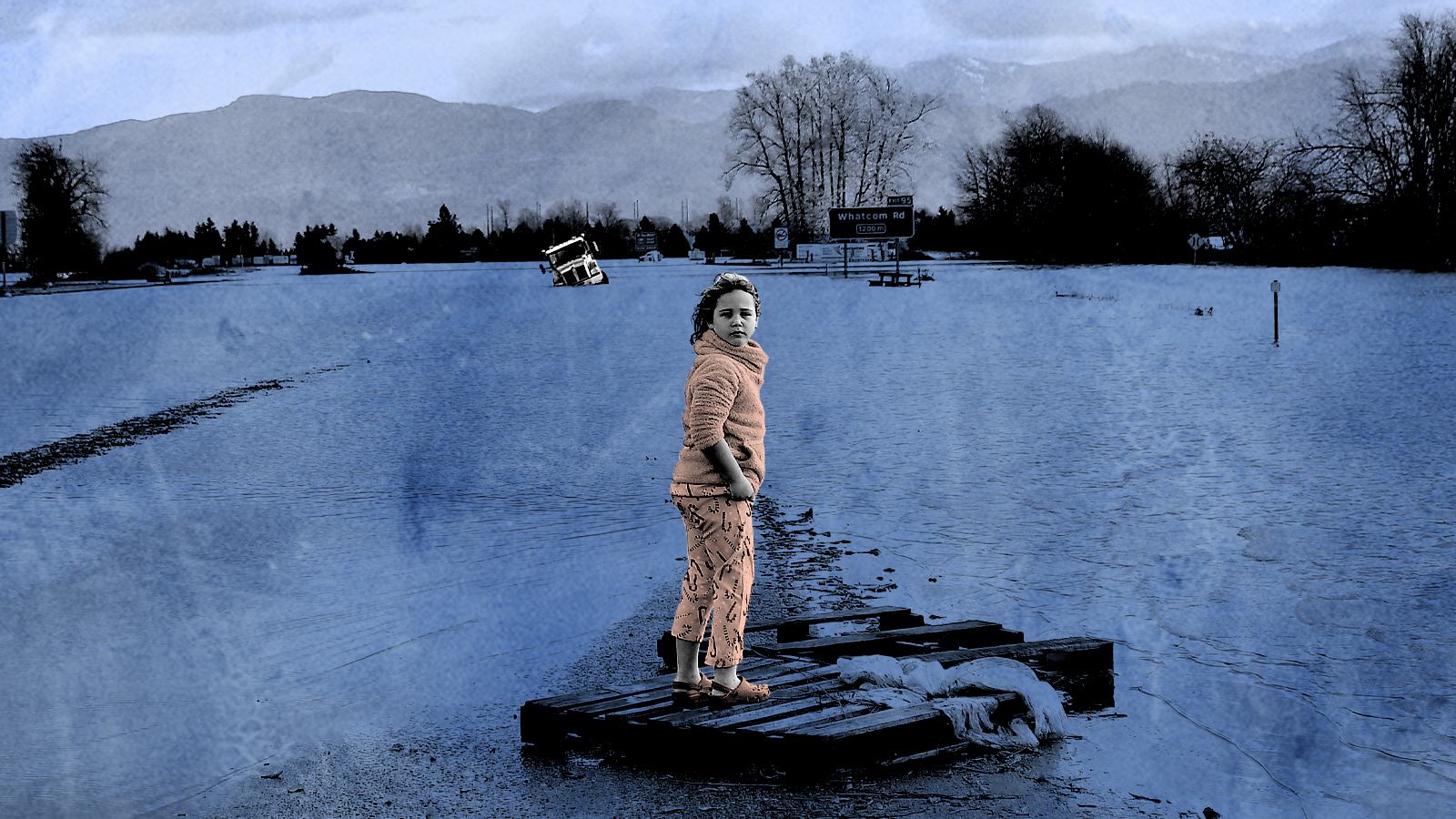The chaos on Canada's west coast is a preview of climate change woes to come


A free daily email with the biggest news stories of the day – and the best features from TheWeek.com
You are now subscribed
Your newsletter sign-up was successful
World leaders have just returned home from COP26, the United Nations Climate Change Conference in Glasgow, eager to talk about the progress they made in devising strategies to combat climate change. Right on time, events on the west coast of Canada have given us a glimpse of our perilous environmental future.
This past June, British Columbia was sitting under a highly irregular "heat dome" that drove temperatures up to astonishing heights. Fires, smoke, and life-threatening heat enveloped both sides of the U.S.-Canada border, but things were especially bad above the 49th parallel, with the town of Lytton topping out at 121 degrees Fahrenheit and ending up completely consumed by flames from a brushfire.
Now, just a few months later, an "atmospheric river" has delivered a wind-swept deluge to the same area, bringing widespread washouts, mudslides, and avalanches. The consequences for infrastructure — and, as a result, already buckling supply chains — have been especially shattering.
The Week
Escape your echo chamber. Get the facts behind the news, plus analysis from multiple perspectives.

Sign up for The Week's Free Newsletters
From our morning news briefing to a weekly Good News Newsletter, get the best of The Week delivered directly to your inbox.
From our morning news briefing to a weekly Good News Newsletter, get the best of The Week delivered directly to your inbox.
Writing in the National Post, author Terry Glavin notes that the Port of Vancouver and other marine terminals in the area "are now cut off from the rest of Canada, by road and by rail," with the Coquihalla Highway and Highway 3 both impassable. It may be possible to resolve the rail disruptions fairly quickly, but the same isn't true for roads. A government official estimates it could take "several weeks or months" to get them reopened. And because the flooding has been so widespread across the region, diverting truck traffic through the United States to the south isn't a great option either.
Add in entire towns under water, polluted municipal water systems, and gas lines severed with winter weather on the way — and we're left with a devastating picture of coastal western Canada. It's just the latest disturbing image of what awaits the world over the coming years and decades.
Extreme weather events — storms, floods, drought, deadly heat and cold — are bad enough in themselves. But they don't just do immediate damage to people and private property. They also play havoc with the networks of commerce and travel on which our modern lives and economies depend.
Yes, we need to do what we can to cut emissions so things don't become even worse down the road. But they're going to become pretty bad regardless. Internalizing that fact is an important task, not least because doing so might goad us to develop a nimbleness in our response to disasters and resilience in our supply chains once the worst discrete weather events have receded.
A free daily email with the biggest news stories of the day – and the best features from TheWeek.com
Human beings can get used to anything. We're going to have to get used to calamity.
Damon Linker is a senior correspondent at TheWeek.com. He is also a former contributing editor at The New Republic and the author of The Theocons and The Religious Test.
-
 The world’s most romantic hotels
The world’s most romantic hotelsThe Week Recommends Treetop hideaways, secluded villas and a woodland cabin – perfect settings for Valentine’s Day
-
 Democrats push for ICE accountability
Democrats push for ICE accountabilityFeature U.S. citizens shot and violently detained by immigration agents testify at Capitol Hill hearing
-
 The price of sporting glory
The price of sporting gloryFeature The Milan-Cortina Winter Olympics kicked off this week. Will Italy regret playing host?
-
 How climate change is affecting Christmas
How climate change is affecting ChristmasThe Explainer There may be a slim chance of future white Christmases
-
 Why scientists are attempting nuclear fusion
Why scientists are attempting nuclear fusionThe Explainer Harnessing the reaction that powers the stars could offer a potentially unlimited source of carbon-free energy, and the race is hotting up
-
 Canyons under the Antarctic have deep impacts
Canyons under the Antarctic have deep impactsUnder the radar Submarine canyons could be affecting the climate more than previously thought
-
 NASA is moving away from tracking climate change
NASA is moving away from tracking climate changeThe Explainer Climate missions could be going dark
-
 What would happen to Earth if humans went extinct?
What would happen to Earth if humans went extinct?The Explainer Human extinction could potentially give rise to new species and climates
-
 Bacteria can turn plastic waste into a painkiller
Bacteria can turn plastic waste into a painkillerUnder the radar The process could be a solution to plastic pollution
-
 Cautious optimism surrounds plans for the world's first nuclear fusion power plant
Cautious optimism surrounds plans for the world's first nuclear fusion power plantTalking Point Some in the industry feel that the plant will face many challenges
-
 Florida has a sinking condo problem
Florida has a sinking condo problemUNDER THE RADAR Scientists are (cautiously) ringing the alarms over dozens of the Sunshine State's high-end high-rises
